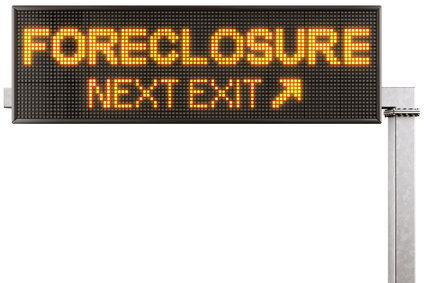It's time to officially declare a real estate price bottom. And yes, prices could erode further in the hardest hit markets ' At least statistically ' but remember, the lower they've gone, the more likely they are to rebound with gusto.

It's official - Now is the time to buy! © Patryk Kosmider - Fotolia.com
Market fundamentals usually develop so that the market with the lowest prices now will tend to rebound with more 'bounce' over time. This means that the hardest hit markets, still highly desirable locations in the sunbelt, will yield much better equity over time. The stronger areas, which have sustained higher prices per square foot, will not be as volatile to the 'up-side' as these areas that were over-built and over-invested.
The one reason I am confident in declaring an official market bottom is because in many areas where the foreclosure crisis has been intense, it's now cheaper to buy a foreclosure than it was to build the same home originally.
Fundamentally, a residential property 'hits bottom' when the selling price is lower than the cost to build originally. Generally speaking, that's about as good of a deal as you can get. And when you are talking about nice homes, it's even better.
Shelter is an essential part of human existence. This fundamental fact helps to insure that there will always be a demand for shelter. As long as there is enough demand, the value of homes will not go below the affordable level for that particular area.
I'm in Atlanta, Georgia. We're the most depressed housing market in the U.S., according to the Case-Schiller index. And we've got neighborhoods here that are selling at 30% of their original value, even in move-in condition. This used to be the exclusive territory of old junkers and fixer-uppers in the inner city. Today it's homes in the burbs that are 10 years old or less.
When you start buying homes with 1596 square feet of living space, plus a 1596 square foot basement, 3 quarter acre lot with fenced-in backyard, for $40,000 you are talking about buying the home for $25.06 per square foot ' less than it cost to build it originally. It sold new in 2001, for $115,500, or about $72 per square foot.
Once you reach this level, demand will naturally rise. Fundamentally the property begins to become viable again, as either a rental property, or an owner-occupied home. The key is legitimate demand from a real end user, not a speculator who needs to resell. (Demand from end-user buyers must be real to sustain prices at any level).
You can't even get a typical mortgage for a property that is this cheap. Most lenders don't go below $50,000. Today we have almost-new houses, in excellent condition, selling for 1/2 of what it cost to build them.
Reason number two for calling a bottom: Prices are finally so low, that cash flowing for rental is viable again as a real estate investing and retirement strategy.
The housing market boom ran prices up so much that landlords found their ownership costs often outstripping their cash flow from rentals. In other words, they could not raise the rent high enough to support the higher property prices, so rental property stopped cash flowing, and by 2005 landlords were starting to go into foreclosure.
The landlords in boom cities were at the front of the wave of what would become a tsunami of foreclosures, as buy prices exceeded the ability to increase rental rates. They found themselves with properties that either would not rent for enough to cover their PITI, or they could not find a tenant at all.
By 2006 there were so many investors with section 8 rental properties, the supply actually exceeded the demand in many markets, and those markets ' places like Atlanta, Las Vegas, Miami, and Phoenix, started to stall out.
But today, the low selling prices for foreclosures have gotten rid of the worries over cash flow. Most of the houses that can be bought for $40,000 can be rented for $850 to $900 on the open market. Section 8 pays even more. In 2012, the rental property market is 'cooking with gas', with positive cash flow at the best levels we've seen in many years.
Reason number three for calling a bottom: The ability to generate equity on day one. When buy prices are low, there are a variety of benefits to the owner. Another great benefit of low cost foreclosures is instant equity.
Equity is the difference between what you owe on your mortgage, and the total market value of the property. Just taking a foreclosure and putting it back into service will add instant equity. Foreclosure takes a property and makes it 'distressed' even if that property is in very good condition. Buying foreclosures for $30,000, that cost $60,000 to build, generally will guarantee you some instant equity, simply by putting the property back into service. If repair costs are minimal, and you are buying at 30 cents on the dollar, you've got one heck of a deal that virtually did not exist prior to the 2008 market collapse.

Buying now will lead to instant equity © frenta - Fotolia.com
Here's the bottom line: If you are a smart home buyer or real estate investor, this market is what you've been waiting for.
With Wall Street 'gangs' getting into the rental property market, it's just a matter of time before the fundamentals swing back to favor rising prices. Once the initial market glut has been bought up, prices will begin to rise slowly. If interest rates go up, as they most probably will at some point in time, you'll look like a genius if you've got a portfolio of houses bought for 30 cents on the dollar, financed at 4%, and rented for $850 a month.
I have an investor friend who tells me that they are bulldozing houses in a few areas in California. Those locations are the farthest out, and there was never any real demand from end users like landlords or owner-occupants. It was false demand caused by rampant speculation and over building. Location is still a fundamental issue that carries a lot of weight. Areas with no buyer demand, and no occupants have no value. Houses only have value where there is real demand. Don't ignore this basic market fundamental. And that being said'.
Most people don't realize it, but today's housing market is a beautiful oasis of opportunity that will dry up and disappear in years to come. Investor activity is already reaching a fever pitch. If the economy does improve, and we see real job growth, this market could start going up a bit by 2013. All things considered, things probably won't get much better than they are today, where real estate investing is concerned. ***
'''''''''''''''''''''''''''''''''''''
Donna Robinson is a 16 year veteran of the real estate industry and a staff writer for Realty Biz News. She is an active real estate investor who also provides coaching and consulting services to individual investors, investment companies, real estate agents and brokers. Get her free newsletter on her website, www.RealtyBizConsulting.com



























